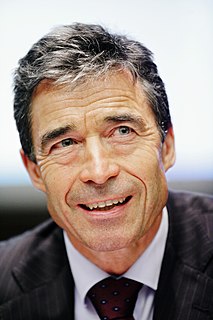A Quote by Sri Mulyani Indrawati
Between 1995 and 2009, Western Europe's entrepreneurs created jobs faster than the U.S. did, and European economies exported more than the BRIC countries of Brazil, Russia, India and China. Eastern Europe's productivity increased more rapidly than East Asia's.
Related Quotes
The truth is that we have long had a multi-track Europe with very different objectives. The traditional differences between the north and the south in fiscal and economic policy are far less problematic than those that exist between Eastern and Western Europe. In the south and east, China is steadily gaining more influence, such that a few EU member states no longer dare to make decisions that run counter to Chinese interests. You see it everywhere: China is the only country in the world that has a real geopolitical strategy.
The BRIC countries - Brazil, India, China, Turkey, South Africa, Indonesia even, and Russia - are now new actors. Over the last eight years, China multiplied by seven its economic presence and penetration in the Middle East. And if this happens on economic terms and there is a shift towards the East, the relationship between these countries and Israel is completely different from the United States. And it means that the challenges are going to be different, because China is not supporting Israel the way the U.S. are supporting Israel.
Much as Cold War nuclear strategists could argue about winning a nuclear war by having more survivors, advocates of a Global Warming War might see the United States, Western Europe, or Russia as better able to ride out climate disruption and manipulation than, say, China or the countries of the Middle East.
I think that in this globalised world, the local is going to become more and more important - it is a paradox. You see it in Western Europe more and more. Eastern Europe is still coming out of the Soviet uniform cultural era, but this kind of separation and nationalism is very obvious now in Western Europe.
Some people say Russia is running at 50 percent of its gross domestic product under that during the Communist period. In fact, none of the countries seems to have recovered the level that they had under communism, although the other countries in Eastern Europe are doing better than Russia and particularly the Czech Republic seems to be doing modestly well. East Germany I can't count because they have a rich uncle. You have economic benefits which have nothing to do with the workings of the system.




































